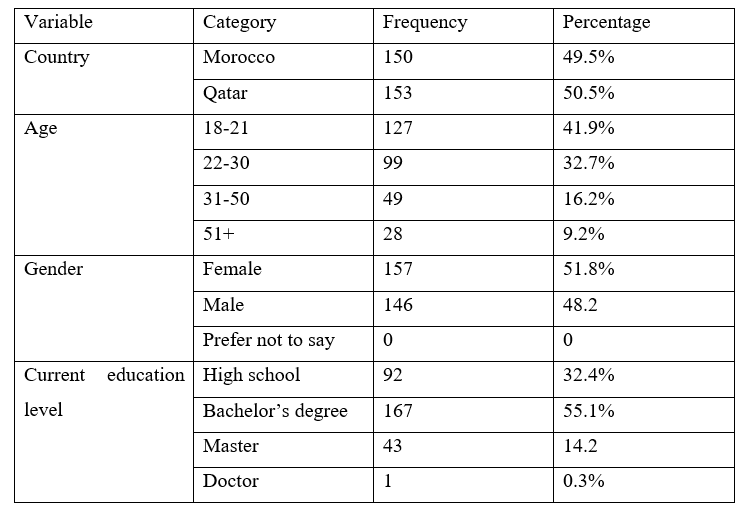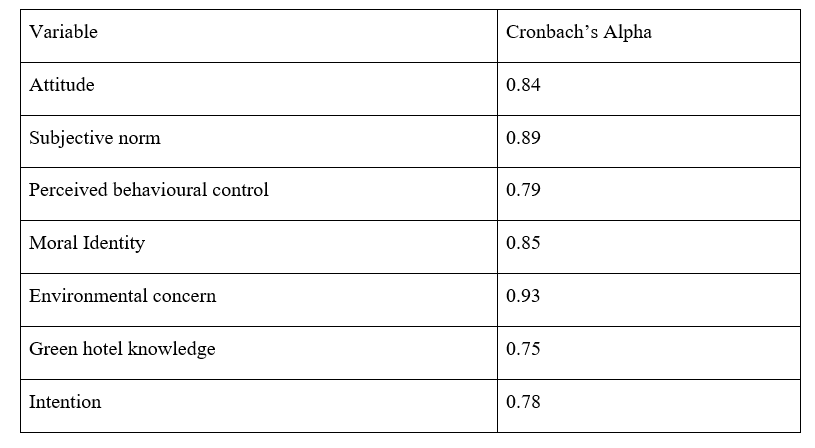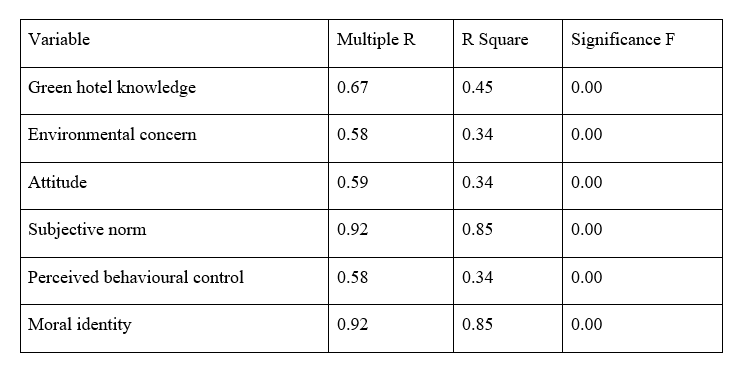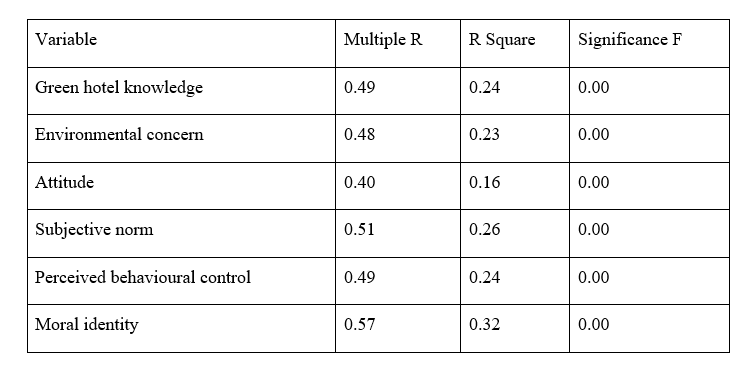
Green Hotels Project
Executive Summary
The aim of this project was to explore consumer perceptions of green hotels through the factors that Azjen's Theory of Planned Behaviour suggests influence behaviour in addition to other variables suggested by the current literature concerning the model and green hotels to better understand how to persuade consumers to learn more about green hotels and visit these establishments.
A self-administered online questionnaire was distributed to a total of 303 consumers, 150 from Morocco and 153 from Qatar. The results were analysed through descriptive analysis and regression analysis.
The constructs, environmental concern, green hotel knowledge, attitude, subjective norms, perceived behavioural control and moral identity were all found to be statistically significant in predicting consumers’ intention to visit green hotels and their intentions to learn about green hotels.
Hypotheses:
H1: Attitude has a positive impact on the intention to visit green hotels.
H2: Attitude has a positive impact on the intention to learn about green hotels.
H3: Subjective norm has a positive impact on the intention to visit green hotels.
H4: Subjective norm has a positive impact on the intention to learn about green hotels.
H5: Perceived behavioural control has a positive impact on the intention to visit green hotels.
H6: Perceived behavioural control has a positive impact on the intention to learn about green hotels.
H7: Moral identity has a positive impact on the intention to visit green hotels.
H8: Moral identity has a positive impact on the intention to learn about green hotels.
H9: Environmental concern has a positive impact on the intention to visit green hotels.
H10: Environmental concern has a positive impact on the intention to learn about green hotels.
H11: Green hotel knowledge has a positive impact on the intention to visit green hotels
H12: Green hotel knowledge has a positive impact on the intention to learn about green hotels
Table 1 presents the sample composition
Sample Composition:
Validity and reliability of the results:
To assess the internal consistency of the questions Cronbach’s Alpha was used. The alpha coefficient for the whole survey was 0.94 indicating an acceptable level. A breakdown of Cronbach’s Alpha for each variable measured is illustrated in Table 2
Analysis
Multiple Regression Intention to Visit Green Hotels
All variables were found to be statistically significant at p=0.00. The analysis revealed that 45% of the variance in intention to visit green hotels can be accounted for by green hotel knowledge, 34% can be accounted for by environmental concern, 34% can be accounted for by attitude, 85% can be accounted for by subjective norm, 34% can be accounted for by PBC and finally, 85% can be accounted for my moral identity.


Multiple Regression of Intention to Learn About Green Hotels
All variables were found to be statistically significant at p=0.00. The analysis revealed that 24% of the variance in intention to learn about green hotels can be accounted for by green hotel knowledge, 23% can be accounted for by environmental concern, 16% can be accounted for by attitude, 26% can be accounted for by subjective norm, 24% can be accounted for by PBC and finally, 32% can be accounted for by moral identity.
Conclusion
The overall aim of this study was to explore consumer perception of green hotels in two contexts, Morocco and Qatar. This was explored through the lens of the Theory of Planned Behaviour to better understand the different factors influencing consumer behaviour in order to understand how to change consumer behaviour to persuade consumers to visit green hotels.
The results reveal that the twelve hypotheses were supported, all six variables positively impact the intention to visit green hotels and the intention to learn about green hotels. This study further confirms the applicability of the TPB in Morocco and Qatar and opens up avenues for future research to expand on the literature on green hotels in both national contexts.




-57f4e00f.png)
